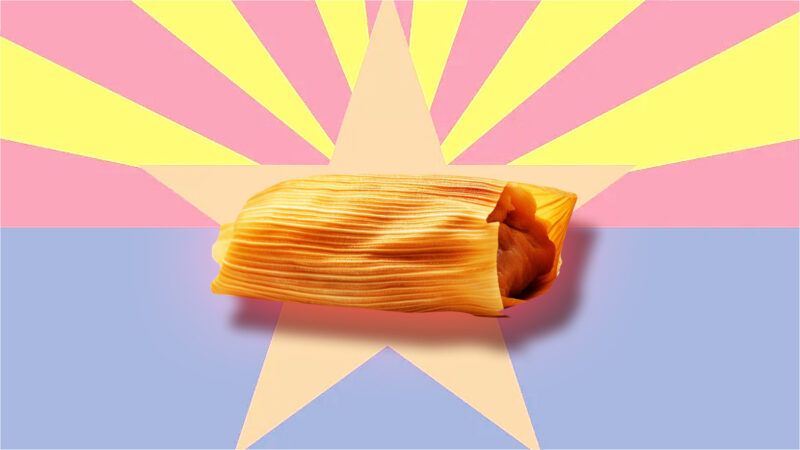Will Arizona Legalize Its Tamale Black Market This Year?
A veto from Gov. Katie Hobbs killed a bill that would’ve brought the trade above ground. Now lawmakers have launched a new legalization effort.

Last year, Arizona nearly legalized one of its most beloved illicit markets: the sale of homemade tamales. House Bill 2509, which would've legalized the sale of "potentially hazardous" homemade goods containing perishable ingredients, passed both chambers of the Arizona Legislature with overwhelming bipartisan support—but in a controversial move, Democratic Gov. Katie Hobbs vetoed it.
This year, lawmakers are launching another legalization effort. Members of the House Regulatory Affairs Committee "voted 6–0 on Wednesday to move the amended bill on to the full House of Representatives," reported the Arizona Mirror. House Bill 2042, introduced by state Rep. Travis Grantham (R–Gilbert), contains training and licensing requirements to address Hobbs' concerns that the previous bill "would significantly increase the risk of food-borne illness." Producers would have to complete food handler training and register with the Arizona Department of Health Services.
If H.B. 2042 passes, these requirements would still pose barriers to licensure. But the bill would also ensure that Arizona's home chefs—many of whom are women and immigrants—would no longer have to work in the shadows, risking a $500 fine and up to six months in jail.
That would benefit entrepreneurs like Maria, a tamale seller in Arizona who spoke with Reason following Hobbs' veto last year. "I was working as a housekeeper but they paid me very little and sometimes I couldn't get to pick up my son from school," she said. "I've always liked to cook a lot and I've always been told that I cook delicious [food] so I said to myself, why not?"
Maria makes good money selling tamales. She can set her schedule to maximize time with her son, and her product keeps customers fed and happy. And, in a testament to how beloved this black market is, some of her customers are even cops in uniform—none of whom seem particularly interested in cracking down on the trade.
Hobbs cited health concerns when she elected to keep tamale sales illegal. But 2023 research from the Institute for Justice (I.J.), a libertarian public-interest law firm that supports deregulation in the "cottage food" industry, casts doubt on that argument. Drawing on data from "the seven states with the broadest homemade food laws" (California, Iowa, Montana, North Dakota, Oklahoma, Utah, and Wyoming), I.J. found that "not a single state has found a foodborne illness to be caused by food sold under their homemade food law."
Last year's legalization bill would have generated $55.3 million in new annual food sales, according to a Common Sense Institute estimate. But Arizona isn't just leaving revenue on the table by keeping "potentially hazardous" homemade food sales illegal—it's keeping a harmless market criminalized and keeping hardworking entrepreneurs from reaching their full potential.


Show Comments (19)